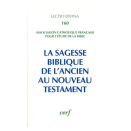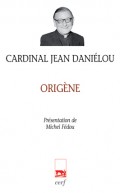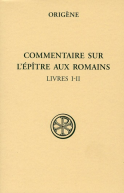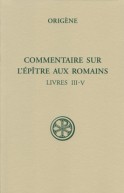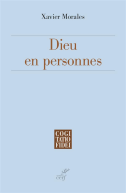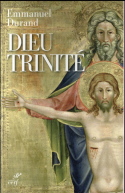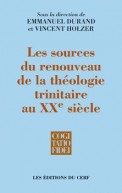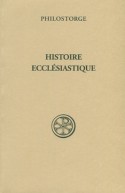La voie du Christ - CF 253
de Michel Fédou
Collection Cogitatio Fidei - N° 253
560 pages - oct. 2006
48,00€
Dès les origines, les chrétiens eurent à rendre compte de leur foi au Christ dans un monde marqué par une grande diversité de pratiques, de croyances, de doctrines, de sagesses, de spiritualités – en un mot, par tout l'éventail de ce que nous appelons aujourd'hui des traditions culturelles et religieuses. Le présent ouvrage se propose d'étudier sous cet angle la littérature du christianisme ancien. Certes, il serait nécessaire d'aborder notre question à travers le Nouveau Testament lui-même (qui, à son tour, ne peut être lu hors de sa relation avec le Premier Testament) ; au demeurant, la lecture proposée ici des textes patristiques présupposera toujours l'autorité de l'Écriture, source première de toute théologie chrétienne. Il est cependant légitime d'aborder le sujet par les écrits postérieurs au Ier siècle, non seulement parce que l'interprétation des textes scripturaires doit tenir compte de décisions ecclésiales qui ont été prises après la rédaction des écrits néo-testamentaires, mais plus précisément parce que la réflexion sur le Christ s'est entre autres développée, dans les siècles de l'époque patristique, à travers de multiples confrontations avec les croyances représentées tout autour du Bassin méditerranéen et même au-delà de celui-ci. C'est donc à cette époque patristique que s'intéresse ce livre – tout au moins à la première moitié de la période, celle qui s'étend des premières décennies du IIe siècle au début du IVe siècle. Selon ses propres termes, le projet de Michel Fédou n'est pas tant de faire une histoire du dogme christologique mais plutôt de « rendre attentif à la genèse et au développement des théologies du Christ dans le contexte des traditions culturelles et religieuses du monde ancien ».
--
Right from the beginning, Christians have had to testify to their faith in Christ in a world marked by a great diversity of practices, beliefs, doctrines, wisdoms and spiritualities – in short, by the entire spectrum of what we refer to nowadays as cultural and religious traditions. The present work undertakes to study ancient Christian literature from this perspective. Of course, it is necessary to tackle the subject through the prism of the New Testament itself (which, in turn, cannot be read except in context with the Old Testament). Nevertheless, the reading of the patristic texts presented here still assumes the authority of the Scriptures, the initial source of all Christian theology. However, one can justifiably approach the subject through texts which predate the 1st century AD, not only because any interpretation of scriptural texts must take into account ecclesial decisions made after the editing of the New Testament writings, but more precisely because reflection on Christ evolved during the centuries of the patristic period, through multiple confrontations with belief systems from all round the Mediterranean basin and ever further afield. It is therefore the patristic epoch which interests us in this book – or at least the first half of that period, stretching from the beginning of the 2nd century AD to the start of the 4th. In Michel Fédou’s own words, his intention was not so much to produce a history of Christological dogma as to ‘create an awareness of the genesis and evolution of theologies relating to Christ in the context of the cultural and religious traditions of the ancient world’.
--
Right from the beginning, Christians have had to testify to their faith in Christ in a world marked by a great diversity of practices, beliefs, doctrines, wisdoms and spiritualities – in short, by the entire spectrum of what we refer to nowadays as cultural and religious traditions. The present work undertakes to study ancient Christian literature from this perspective. Of course, it is necessary to tackle the subject through the prism of the New Testament itself (which, in turn, cannot be read except in context with the Old Testament). Nevertheless, the reading of the patristic texts presented here still assumes the authority of the Scriptures, the initial source of all Christian theology. However, one can justifiably approach the subject through texts which predate the 1st century AD, not only because any interpretation of scriptural texts must take into account ecclesial decisions made after the editing of the New Testament writings, but more precisely because reflection on Christ evolved during the centuries of the patristic period, through multiple confrontations with belief systems from all round the Mediterranean basin and ever further afield. It is therefore the patristic epoch which interests us in this book – or at least the first half of that period, stretching from the beginning of the 2nd century AD to the start of the 4th. In Michel Fédou’s own words, his intention was not so much to produce a history of Christological dogma as to ‘create an awareness of the genesis and evolution of theologies relating to Christ in the context of the cultural and religious traditions of the ancient world’.
- Dimensions : 135x215x28
- ISBN : 9782204081375
- Poids : 685 grammes
DU MÊME AUTEUR
> VOIR TOUS LES LIVRES DE l'AUTEUR
DANS LA CATÉGORIE
SC 267 Scolies ariennes sur le concile d'Aquilée
404 pages - janv. 1980
Théologie en questions (La)
206 pages - févr. 2007
Sources du renouveau de la théologie trinitaire au XXe siècle - CF 266
320 pages - sept. 2008


